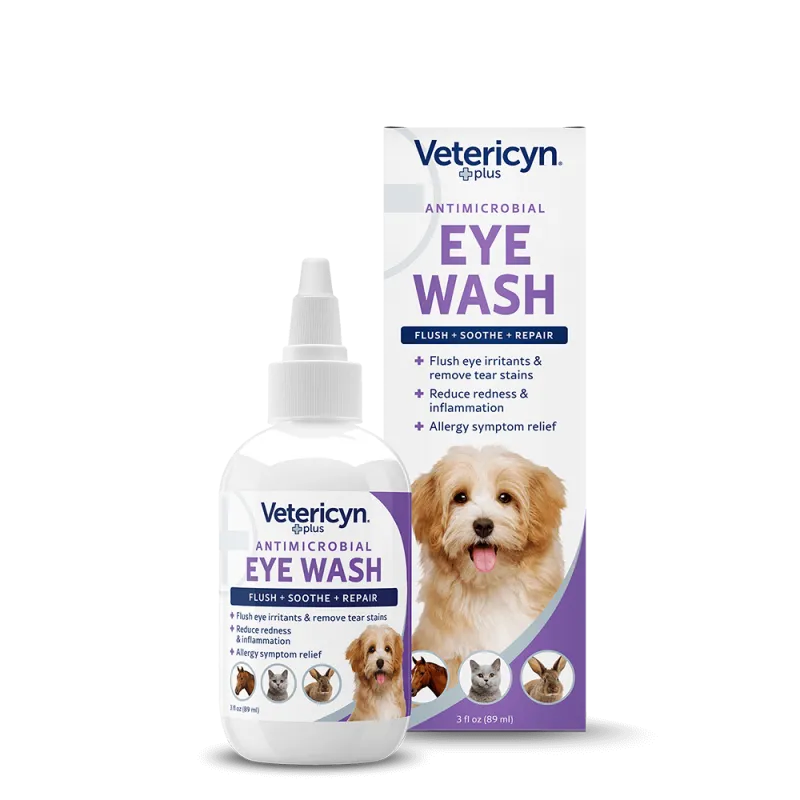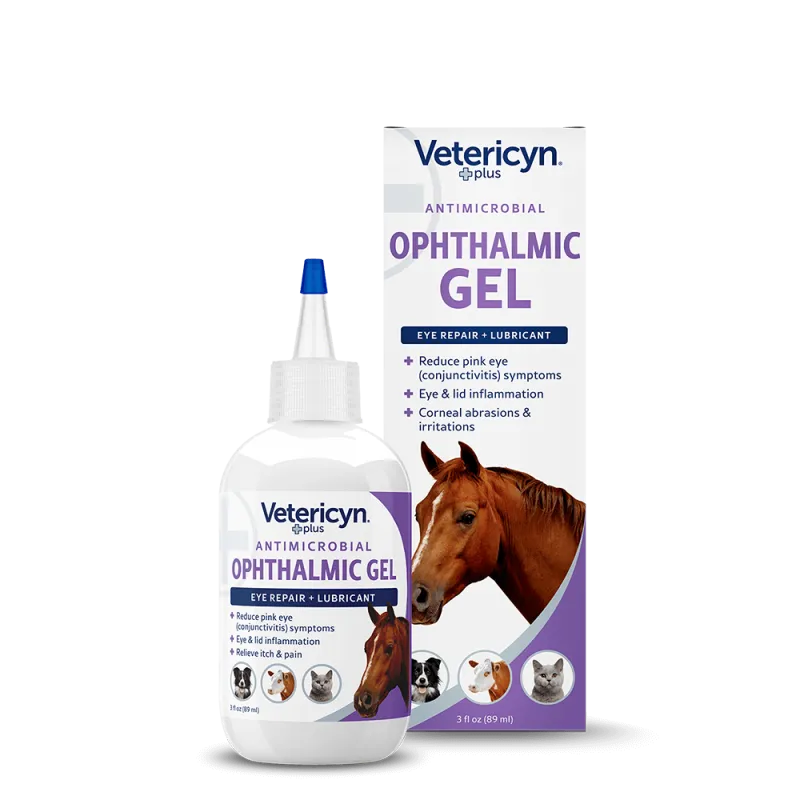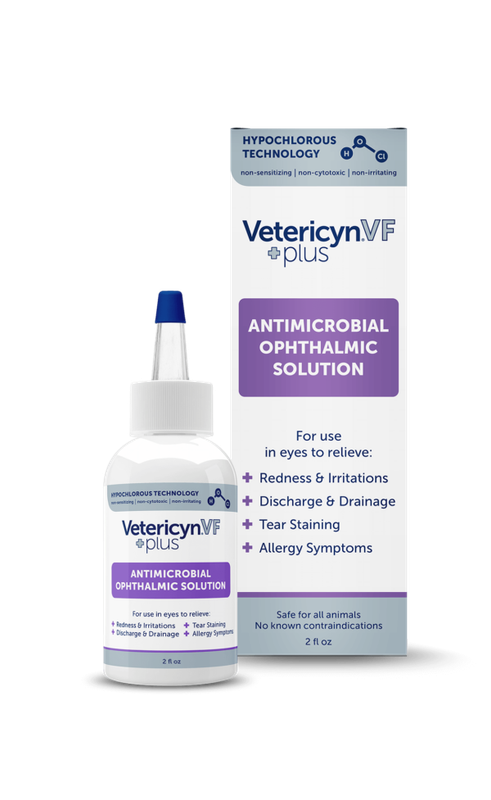Powered by Bestia Europe B.V. | Distributeur Benelux
Why Are My Cat’s Eyes Watering?
At some point in your cat parent life, you’re bound to deal with cat eye problems. Have you noticed your cat tearing up recently? We all need a good cry every once in a while, but if you’re wondering, Why are my cat’s eye watering? It’s likely not because they’ve been listening to Adele’s new album or re-watching The Aristocats.
While a cat’s eyes watering may be due to allergens causing irritation, it could also be a sign of something more serious, such as a bacterial infection or virus. Luckily, your vet can perform an exam to provide some insight into your cat’s watery woes, as well as a recommended treatment plan.
So, before you plan a joint Adele sob sesh with your feline friend, let’s explore some potential reasons why their eyes are watering.
Causes of Watery Cat Eyes
If your cat’s eye watering quickly improves on its own, it was likely a rogue hair or piece of dust that temporarily got stuck in the eye. However, if your cat’s eyes are consistently watering, they may be suffering from a common cat eye issue, such as:
- Conjunctivitis – An infection also known as “pink eye.”
- Congenital allergies – This may be due to pollen or other substances in the environment.
CONJUNCTIVITIS
Conjunctivitis is an infection of the conjunctiva, the mucus layer that covers the eyeball and the insides of the eyelids—in both cats and humans.1 Feline conjunctivitis is usually caused by one of two infections: bacterial or viral.
BACTERIAL INFECTION
Several bacterial infections can lead to conjunctivitis—and, as a result, teary eyes. These can include:2
- Streptococcus
- Bordetella
- Salmonella
- Toxoplasmosis
- Chlamydophila
Some of these bacterial infections may be familiar to you since some of them can also be present in humans. However, they often present differently in felines than they do in humans, so it’s important to consult with your vet right away if you suspect that your cat has a bacterial infection.
Some telltale signs to watch for include watery or gooey eyes, excessive blinking, and squinting.
VIRAL INFECTION
Like humans, cats are also susceptible to viral infections, the most common is Feline Herpes Virus or Feline Viral Rhinotracheitis.3 While Feline Herpes Virus can cause upper respiratory infections (AKA cat flu), it’s also the most common underlying cause of conjunctivitis, resulting in cats’ eyes watering.
Cats can contract the virus in two ways, both of which are the result of fluid transmission via saliva and tears:
- If one cat comes into contact with an infected cat during the incubation period (between two and five days after symptoms begin to present), they can become infected.
- If a cat comes into contact with an object—like a toy, a food bowl, or a blanket—contaminated with saliva or tears from an infected cat, they can contract the virus.
Much like Herpes Simplex Virus in humans, Feline Herpes Virus lies dormant in infected cats once symptoms subside (typically after ten to fifteen days). However, symptoms can present multiple times during a cat’s life. Anytime a cat is showing symptoms, they’re liable to transmit the virus to another cat.
CONGENITAL ALLERGIES
Aside from virally- or bacterially-induced conjunctivitis, congenital allergies can also cause teary eyes.
Congenital issues—issues a cat is born with—aren’t curable, but they are manageable with both prescriptions from a vet and modifications to the cat’s environment.
If your vet diagnoses your cat with an allergy, they may recommend some of the following tips:
- If your cat’s eyes are watering due seasonal allergies to pollen, your vet may recommend adding an air purifier to your home to reduce airborne pollen particulates.
- If you’ve recently changed laundry detergents or started using a new household air freshener, your vet will likely recommend you discontinue using it.
- If your vet discovers that your cat is allergic to an ingredient in their food, they may recommend a different brand or a specialized formula.
Once you and your vet identify the cause of your cat’s allergic reaction and cease their exposure to the allergen, your cat’s eyes will likely stop watering.
Are Some Cat Breeds More Likely to Have Watery Eyes?
Both conjunctivitis and congenital allergies can impact cats of any age, sex, or breed.
Bacterial infections that can cause conjunctivitis are transmitted in a variety of ways. For instance, bacteria can be passed between cats in a multi-cat household or between outdoor cats. But even if your cat is an only child who lives for the comforts of indoor life, they’re still susceptible to bacteria if they interact with contaminated items, like that dirty shoe they keep attacking. Bacteria doesn’t discriminate, so if a cat is exposed, they can contract a bacterial infection regardless of their breed.
The leading cause of conjunctivitis, Feline Herpes Virus, is also common, and every breed is susceptible. In fact, over 90% of cats live with FHV.4
Similarly, any cat, regardless of breed, can be born with a congenital allergy.
When to See a Vet
The only way to confirm the cause of your cat’s watery eyes—whether it’s conjunctivitis or a congenital allergy—is to schedule a visit to your vet. But, are watering eyes an emergency?
If watering eyes are the only symptom you’ve observed in your cat so far, it’s best to wait 24 hours to see if the problem resolves itself. If your cat’s watery eyes persist, look for other symptoms, such as:
- If your cat is squinting or blinking more frequently than usual, and if the discharge coming out of their eyes is thick, opaque, or discolored, they’re likely suffering from conjunctivitis.
- If your cat’s eyes are watering and they’re also scratching themselves or rubbing up against objects to itch themselves, they could be experiencing an allergic reaction.
If you notice any of the symptoms above, in addition to your cat’s eyes watering (such as “Why are my cat’s eyes red?” or “Why is my cat’s eye swollen?”) schedule an appointment with your vet. Before your appointment, document all symptoms to the best of your ability. Consider taking photos or videos of your cat’s behavior to show your vet. They’ll need as much information as possible to confirm your cat’s diagnosis and recommend the most effective course of treatment.
Treatments for Your Cat’s Watering Eyes
One of the most common treatments for cats with watering eyes is prescription eye drops. After assessing the cause of your cat’s symptoms, your vet will prescribe eye drops that will both soothe your cat’s discomfort and treat the root cause of their watering eyes.
If your vet determines that your cat’s eyes are watering due to bacteria-induced conjunctivitis, they’ll also prescribe an antibiotic to eradicate the bacteria. In the case of the Feline Herpes Virus, your vet is unlikely to prescribe an antibiotic, since they can’t eradicate viruses.
Regardless of whether your cat’s watering eyes are due to a bacterial or viral infection, you can supplement your cat’s eye recovery with Vetericyn Plus Antimicrobial Eye Wash. Our non-stinging formula gently cleans your cat’s eyes, restores natural moisture, and helps prevent future irritations.
For cats with congenital allergies, your vet will likely prescribe eye drops and recommend making changes to your cat’s environment. However, if your cat’s allergic reaction also caused them to excessively scratch at their skin, you can treat their wounds, rashes, and irritated skin with Vetericyn Plus Feline Antimicrobial Hydrogel. Our hydrogel will clean out any bacteria that infiltrated your cat’s vulnerable skin and provide soothing relief. This temporarily answers the question, “How can I treat my cat’s eye infection at home?” But only if you can’t go to the vet yet.
Tips to Keep Your Cat’s Eyes Healthy
While exposure to some bacteria is inevitable (after all, cats are a curious bunch), viral infections are hard to predict, and congenital allergies simply must be dealt with, there are steps cat parents can take to prevent eye injuries and other potential causes of watering eyes. These include:
- Dust and sweep regularly – Cleaning regularly, and even using an air purifier, can help keep your home environment clear of dirt and dust particles. By reducing the chance that your cat will get dirt or dust in their eyes, you can prevent benign eye-watering and potentially decrease your cat’s exposure to airborne bacteria.
- Take good care of your cat’s toys – Wash toys frequently to keep them free of harmful bacteria, and toss out any toys that have started to fall apart to prevent injury from any loose parts.
- Treat your cat’s skin regularly – With Vetericyn Plus Feline Antimicrobial Facial Therapy, you can keep your cat’s skin clear of bacteria that can cause conjunctivitis and prevent common skin, eye, mouth, and ear conditions.
Promote Cat Eye Health with Vetericyn’s Preventative Products
It can happen to even the most responsible pet parents: You’re lounging on the couch, watching your furry friend play with their favorite toy, when all of a sudden you realize, My cat’s eye is watering!
Luckily, most causes of cat’s eyes watering are common and treatable. A few days after a trip to the vet, your cat will be back to normal. But, prevention is the best medicine, and treating your cat with Vetericyn’s slate of antimicrobial products can protect their eyes from future irritation.
At Vetericyn, we want to help keep your pets comfortable, healthy, and happy. That’s why our products won’t sting or burn, and are safe to ingest (so there’s no need to mess with a cone). Check out our products in-store and online to protect your cat’s health and wellness and keep those eyes tear-free.
Sources:
- Cornell Feline Health Center. Conjunctivitis. https://www.vet.cornell.edu/departments-centers-and-institutes/cornell-feline-health-center/health-information/feline-health-topics/conjunctivitis
- National Animal Supplement Council. Bacterial Infections and Cats. https://www.nasc.cc/pet-university/bacterial-infections-and-cats/
- VCA Animal Hospital. Feline Herpesvirus (Feline Viral Rhinotracheitis). https://vcahospitals.com/know-your-pet/feline-herpesvirus-infection-or-feline-viral-rhinotracheitis
- My Vet Candy. What you need to know about feline herpes virus. https://www.myvetcandy.com/clinicalupdblog/2020/2/14/what-you-need-to-know-about-feline-herpes-virus#:~:text=Infection%20with%20FHV%20is%20common,periodically%20throughout%20a%20cat’s%20life.

Vetericyn Plus All Animal Antimicrobial Eye Wash 90 mL
Vetericyn Plus All Animal Antimicrobial Eye Wash 90 mL
Rinse and cleanse the eyes. Relief from allergy symptoms. Cleansing of tear stains. Effective in eye disorders.
€13,18

Vetericyn Plus All Animal Antimicrobial Ophthalmic Gel
Vetericyn Plus All Animal Antimicrobial Ophthalmic Gel
Relieve itch and pain caused by allergies, scratched or inflamed corneas, and to reduce pink eye symptoms.
€14,83

Vetericyn All Animal HydroGel Spray
Vetericyn All Animal HydroGel Spray
Soothing care for skin localized itching and skin problems.
€16,95
Veterinarian Formula

Ophthalmic Wash
Ophthalmic Wash
Discover Vetericyn Plus VF Ophthalmic Wash: the most powerful solution for animal eye care and irritations.
€16,49
Display prices in:EUR


